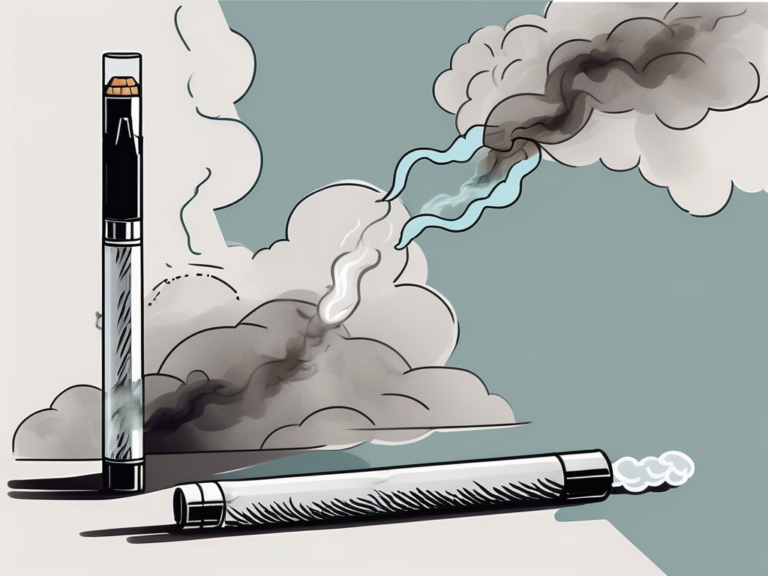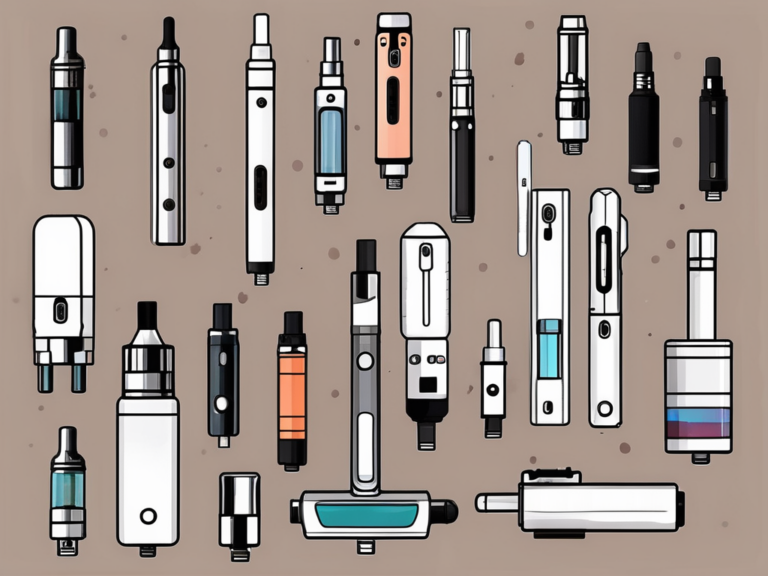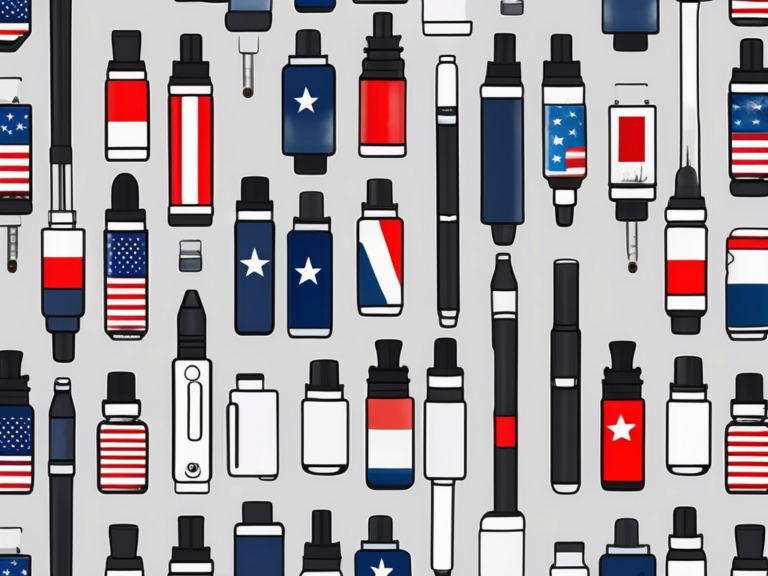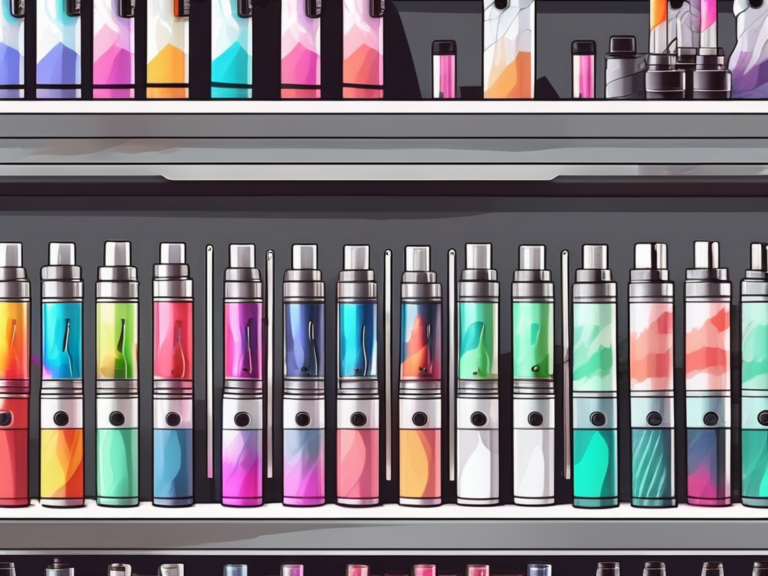how old do u have to be to buy vapes
Vaping has become increasingly popular in recent years, particularly among young adults and teenagers. However, there are certain age restrictions in place to regulate who can legally purchase and use vaping products. In this article, we will explore the legal age requirements for buying vapes, the health implications of vaping for minors, the role of retailers in enforcing age restrictions, the consequences of underage vaping, and the efforts being made to prevent it.
Understanding the Legal Age for Vaping
When it comes to the legal age for purchasing vapes, there are both federal laws and state-specific regulations in place. Let’s take a closer look at each of these.
Vaping, a popular alternative to traditional smoking, has gained significant traction in recent years, especially among younger demographics. With this rise in popularity, concerns about underage vaping have also increased, prompting the need for clear regulations regarding the legal age for purchasing and using vaping products.
Federal Laws on Vaping Age
At the federal level in the United States, the legal age to buy vaping products is 21 years old. This age restriction was implemented in December 2019 as part of the Federal Tobacco 21 law. The aim is to prevent underage individuals from accessing and using e-cigarettes.
Enforcement of the Federal Tobacco 21 law is crucial in curbing the prevalence of underage vaping. Retailers play a significant role in upholding this regulation by verifying the age of customers before selling any vaping products. Additionally, public awareness campaigns highlighting the risks associated with underage vaping help reinforce the importance of complying with these laws.
The Federal Tobacco 21 law applies to all states and territories, regardless of whether they have their own laws on the matter. It is important to note that this law specifically covers e-cigarettes and vaping products that contain nicotine.
State-Specific Regulations on Vaping Age
While the legal age to buy vapes is consistently set at 21 years old at the federal level, individual states have the authority to implement their own regulations with regards to vaping. Some states have chosen to align their laws with the federal requirements, while others have set the minimum age at 18 or 19 years old.
State-specific regulations on vaping age reflect the diverse approaches taken by different regions to address the issue of underage vaping. States may consider factors such as public health concerns, existing tobacco laws, and youth access to vaping products when determining the appropriate legal age for purchasing vapes.
It is essential for both retailers and consumers to be aware of the specific age requirements in their respective states, as failure to comply with these regulations can result in legal consequences. By staying informed and adhering to the laws in place, stakeholders can contribute to promoting responsible vaping practices and safeguarding the well-being of individuals, particularly youth, in the community.
The Health Implications of Vaping for Minors
While vaping has been marketed as a less harmful alternative to traditional tobacco smoking, there are still health risks associated with its use, particularly for minors. Let’s explore some of these risks.
It is essential to delve deeper into the physical and mental health implications of vaping among minors to understand the full scope of the issue. By examining the various factors at play, we can better comprehend the potential risks and consequences associated with underage vaping.
Physical Health Risks
Research has shown that vaping can have negative effects on respiratory health, especially in young individuals whose lungs are still developing. The inhalation of aerosolized substances present in e-cigarettes can lead to lung irritation, breathing difficulties, and an increased risk of respiratory infections.
Moreover, the long-term impact of vaping on the respiratory system is a growing concern within the medical community. Studies have highlighted the potential for chronic respiratory conditions to develop as a result of prolonged exposure to vaping aerosols, underscoring the importance of addressing these risks in the context of underage vaping.
Furthermore, certain additives and flavorings used in vaping products may contain harmful chemicals that can have detrimental effects on the cardiovascular system and overall physical well-being. The intricate interplay between these substances and the body’s physiological processes necessitates a comprehensive examination of how they may impact the health of young vapers.
Mental Health Concerns
Aside from the physical health risks, vaping among minors has also raised concerns regarding mental health. The nicotine content in many vaping products can have addictive properties, leading to dependence and potential long-term negative effects on mental well-being.
Furthermore, the correlation between vaping and mental health disorders such as anxiety and depression in adolescents is a topic of increasing interest among researchers and healthcare professionals. Understanding the psychological ramifications of underage vaping is crucial in developing effective strategies to address the dual challenges of substance use and mental health in young individuals.
Moreover, there is evidence suggesting a connection between vaping and increased risk of mental health disorders such as anxiety and depression in adolescents. It is crucial for parents, educators, and healthcare professionals to be vigilant about the potential impact of vaping on the mental well-being of minors.
The Role of Retailers in Enforcing Vaping Age Restrictions
Retailers play a significant role in preventing underage individuals from accessing vapes and enforcing age restrictions. Let’s examine this responsibility in more detail.
Enforcing age restrictions in the vaping industry is crucial to protect the health and well-being of young people. Retailers, especially vape shops, are on the front lines of this effort, tasked with ensuring that only those of legal age are able to purchase and use vaping products. By diligently checking identification and staying informed about the ever-evolving laws and regulations surrounding vaping, retailers can help curb underage vaping.
Responsibilities of Vape Shops
It is the responsibility of vape shops and other retail establishments that sell vaping products to verify the age of their customers and ensure compliance with the legal requirements. This can involve asking for identification, such as a driver’s license or passport, to confirm that the individual is of legal age to purchase the products.
Moreover, beyond just age verification, vape shops can also play a pivotal role in educating their customers about the potential risks associated with vaping, especially for young and developing individuals. By promoting responsible vaping practices and providing information on the dangers of underage vaping, retailers can contribute to a healthier vaping community.
Online Sales and Age Verification
With the rise of online shopping, age verification has become an important aspect of preventing underage vaping. Online retailers should implement robust age verification systems to ensure that only individuals of legal age can make purchases.
Various methods are employed to verify age online, including scanning identification documents, using third-party age verification services, or requiring a credit card for age confirmation. These measures aim to deter minors from accessing vaping products through online channels.
Furthermore, online retailers must also prioritize secure delivery methods to prevent minors from intercepting packages containing vaping products. By working in conjunction with shipping companies to enforce age verification upon delivery, online retailers can add an extra layer of protection against underage vaping.
Consequences of Underage Vaping
The consequences of underage vaping can be both legal and health-related. Let’s delve into these implications.
Underage vaping is a concerning issue that not only impacts the individual minor but also has broader societal implications. When minors engage in vaping, they are not only breaking the law but also contributing to the normalization of this harmful behavior among their peers.
Legal Penalties for Minors
Minors who are caught purchasing or using vaping products illegally can face legal penalties, depending on the specific laws in their state. These penalties may include fines, mandatory educational programs, or even criminal charges in some cases.
Law enforcement agencies and schools are increasingly cracking down on underage vaping to curb its prevalence and protect the health and well-being of young individuals. By enforcing strict penalties, authorities aim to deter minors from engaging in this risky behavior and promote compliance with age restrictions on vaping products.
Long-Term Health Consequences
In addition to legal repercussions, underage vaping can have severe long-term health consequences. The potential risks include detrimental effects on lung function, increased susceptibility to respiratory illnesses, and addiction to nicotine.
Furthermore, the chemicals present in vaping products can have unknown long-term effects on the developing bodies of adolescents. The inhalation of these substances can lead to respiratory issues and may also impact cognitive development, raising concerns about the overall well-being of young individuals who vape.
Moreover, the long-term health impacts of vaping are still being studied. Research is ongoing to determine the full extent of the health risks associated with vaping, particularly in relation to prolonged use and exposure during adolescence. It is crucial for parents, educators, and healthcare professionals to educate minors about these potential health risks and support efforts to prevent underage vaping.
Efforts to Prevent Underage Vaping
Recognizing the importance of curbing underage vaping, various efforts are being made to prevent young individuals from engaging in this behavior.
Educational Campaigns and Initiatives
Educational campaigns targeted at both adolescents and adults are being conducted to raise awareness about the risks and consequences of underage vaping. These initiatives aim to provide accurate information and promote informed decision-making.
Schools, healthcare professionals, and community organizations are actively involved in implementing anti-vaping programs and promoting healthy behaviors among youth.
Parental and School Involvement
The involvement of parents and schools is crucial in preventing underage vaping. By maintaining open lines of communication, parents can educate their children about the dangers of vaping and encourage them to make informed choices regarding their health.
Schools can also play a vital role by incorporating vaping prevention into their health curricula and establishing strict policies that discourage vaping on school premises.
While efforts are being made to address the issue of underage vaping, it requires a collective commitment from individuals, communities, and policymakers to protect young individuals from the potential harms associated with vaping.






